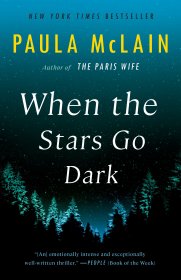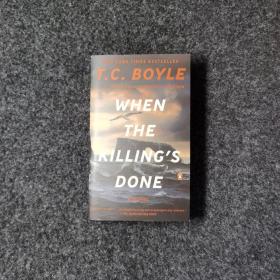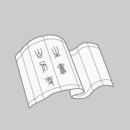
【预订】When the Stars Go Dark
书籍内容简介可联系客服查阅,查书找书开票同样可以联系客服
¥ 78 ¥ 78 九五品
库存2件
作者Paula McLain
出版社Random House Publishing Group
ISBN9780593237915
出版时间2022-04
装帧平装
定价78元
货号YB-86116
上书时间2024-08-22
- 最新上架
商品详情
- 品相描述:九五品
- 商品描述
-
商品简介
NEW YORK TIMES BESTSELLER • GOOD MORNING AMERICA BUZZ PICK • “A total departure for the author of The Paris Wife, McLain’s emotionally intense and exceptionally well-written thriller entwines its fictional crime with real cases.”—People (Book of the Week)
NAMED ONE OF THE BEST BOOKS OF THE YEAR BY MARIE CLAIRE • “The kind of heart-pounding conclusion that thriller fans crave . . . In the end, a book full of darkness lands with a message of hope.”—The New York Times Book Review
“This mystery will keep you guessing, and stay with you long after you finish. Dive in.”—Daily Skimm
Anna Hart is a seasoned missing persons detective in San Francisco with far too much knowledge of the darkest side of human nature. When tragedy strikes her personal life, Anna, desperate and numb, flees to the Northern California village of Mendocino to grieve. She lived there as a child with her beloved foster parents, and now she believes it might be the only place left for her. Yet the day she arrives, she learns that a local teenage girl has gone missing.
The crime feels frighteningly reminiscent of the most crucial time in Anna’s childhood, when the unsolved murder of a young girl touched Mendocino and changed the community forever. As past and present collide, Anna realizes that she has been led to this moment. The most difficult lessons of her life have given her insight into how victims come into contact with violent predators. As Anna becomes obsessed with saving the missing girl, she must accept that true courage means getting out of her own way and learning to let others in.
Weaving together actual cases of missing persons, trauma theory, and a hint of the metaphysical, this propulsive and deeply affecting novel tells a story of fate, necessary redemption, and what it takes, when the worst happens, to reclaim our lives—and our faith in one another.
纽约时报畅销书• 早安美国 BUZZ PICK • “对于《巴黎妻子》的作者来说,麦克莱恩的这本情感强烈、写得异常出色的惊悚小说完全不同,将虚构的犯罪与真实的案件交织在一起。—< i>人物(本周图书)
被《玛丽克莱尔》评为年度最佳图书之一&牛; “惊悚片迷们渴望的那种令人心碎的结局。 。 。最终,一本充满黑暗的书带着希望的信息降临。”—纽约时报书评
“这个谜团会让你不断猜测,并在你完成后很长一段时间里一直伴随着你。深入了解。”——每日 略读
安娜·哈特 (Anna Hart) 是旧金山一位经验丰富的失踪人员侦探,她对失踪人员的了解非常丰富人性最黑暗的一面。当悲剧降临到她的个人生活时,安娜绝望又麻木,逃到北加州的门多西诺村庄去哀悼。她小时候和她心爱的养父母住在那里,现在她相信这可能是她唯一的地方。然而,在她到达的那天,她得知当地一名少女失踪了。
这起犯罪令人恐惧地让人想起安娜童年时期最关键的时刻,当时一名年轻女孩悬而未决的谋杀案触动了门多西诺,永远改变了社区。随着过去和现在的碰撞,安娜意识到她已经被引导到了这一刻。她一生中最艰难的教训让她深入了解受害者如何与暴力掠夺者接触。当安娜沉迷于拯救失踪的女孩时,她必须接受真正的勇气意味着走出自己的道路并学会让别人进来。
将失踪人员的实际案例、创伤理论和暗示编织在一起这部形而上学的小说讲述了一个关于命运、必要的救赎,以及当最坏的情况发生时如何恢复我们的生活和我们对彼此的信心的故事。
作者简介
Paula McLain is the New York Times bestselling author of the novels Love and Ruin, Circling the Sun, The Paris Wife, and A Ticket to Ride, the memoir Like Family: Growing Up in Other People's Houses, and two collections of poetry. Her writing has appeared in The New York Times, Good Housekeeping, O: The Oprah Magazine, Town & Country, The Guardian, The Huffington Post, and elsewhere. She lives in Ohio with her family.
精彩内容
(one)
The night feels shredded as I leave the city, through perforated mist, a crumbling September sky. Behind me, Potrero Hill is a stretch of dead beach, all of San Francisco unconscious or oblivious. Above the cloud line, an eerie yellow sphere is rising. It’s the moon, gigantic and overstuffed, the color of lemonade. I can’t stop watching it roll higher and higher, saturated with brightness, like a wound. Or like a door lit entirely by pain.
No one is coming to save me. No one can save anyone, though once I believed differently. I believed all sorts of things, but now I see the only way forward is to begin with nothing, or whatever is less than nothing. I have myself and no one else. I have the road and the snaking mist. I have this tortured moon.
I drive until I stop seeing familiar landmarks, stop looking in my rearview to see if someone is following me. In Santa Rosa, the Travelodge is tucked behind a superstore parking lot, the whole swath of it empty and overlit, like a swimming pool at night with no one in it. When I ring the bell, the night manager makes a noise from a back room and then comes out cheerfully, wiping her hands on her bright cotton dress.
“How are you?” she asks. The world’s most innocuous question, impossible to answer.
“Fine.”
She holds out the registration card and a purple pen, the dimpled flesh under her arm unfurling like a wing. I feel her looking at my face, my hair. She watches my hands, reading upside down. “Anna Louise Hart. That’s sure a pretty name.”
“What?”
“Don’t you think so, baby?” Her voice has the Caribbean in it, a rich, warm slant that makes me think she calls everyone “baby,” even me.
It’s hard work not to flinch at her kindness, to stand in the greenish cast of the fluorescent bulb and write down the number of my license plate. To talk to her as if we’re just any two people anywhere, carrying on without a single sorrow.
She finally gives me my key, and I go to my room, shutting the door behind me with relief. Inside there’s a bed and a lamp and one of those oddly placed chairs no one ever sits in. Bad lighting flattens everything into dull rectangles, the tasteless carpet and plastic-looking bedspread, the curtains missing their hooks.
I set down my duffel in the center of the bed, take out my Glock 19 and tuck it under the stiff pillow, feeling reassured to have it nearby, as if it’s an old friend of mine. I suppose it is. Then I grab a change of clothes, and start the shower, taking care to avoid the mirror as I undress, except to look at my breasts, which have hardened into stones. The right is hot to the touch, with a blistered red mound surrounding the nipple. I run the water in the shower as hot as it will go and stand there, being burned alive, with no relief at all.
When I climb out, dripping, I hold a washcloth under the faucet before microwaving it, sodden, until it smokes. The heat feels volcanic as I press it hard against myself, singeing my hands as I bend double over the toilet bowl, still naked. The loose flesh around my waist feels as rubbery and soft against my arms as a deflated life raft.
With wet hair, I walk to the all-night drugstore, buying ACE bandages and a breast pump, ziplock bags, and a forty-ounce bottle of Mexican beer. They only have a hand pump in stock, awkward and time-consuming. Back in my room, the heavy outmoded television throws splayed shadows on the bare wall. I pump with the sound off on a Spanish soap opera, trying to distract myself from the ache of the suction. The actors make exaggerated movements and faces, confessing things to one another while I labor on one breast and then the other, filling the reservoir twice and then emptying the milk into the baggies I label 9/21/93.
I know I should flush it all, but I can’t make myself do it. Instead, I hold the bags for a long minute, registering their meaning before tucking them into the freezer of the small convenience unit and closing the door, and thinking only briefly about the housekeeper who will find them, or some roadstrung trucker looking for ice and feeling repulsed. The milk tells a whole sordid story, though I can’t imagine any stranger correctly guessing at the plot. I’m having a hard time understanding it myself, and I’m the main character; I’m writing it.
Just before dawn I wake feverish and take too many Advil, feeling my throat catch and burn around the capsules. A breaking-news banner is running across the bottom of the TV. forty-seven confirmed dead in big bayou, alabama. deadliest crash in amtrak history. Sometime in the middle of the night, a towboat on the Mobile River has gotten off course in heavy fog and driven a barge into the Big Bayou Canot Bridge, displacing the track by three feet. Eight minutes later, running right on schedule, the Amtrak Sunset Limited traveling from Los Angeles to Miami has slammed into the kink at seventy miles per hour, shearing off the first three cars, collapsing the bridge, and rupturing the fuel tank. Amtrak is citing negligence of the tugboat driver. Several crew members are missing, and recovery efforts are still underway. President Clinton is supposed to visit the site later today.
I click off the set, wishing that the rubbery red button on the remote could work to shut off everything, inside and out. Chaos and despair and senseless death. Trains hurtling toward kinks and gaps, everyone aboard sleeping and clueless. Tugboat captains on the wrong river at exactly the wrong moment.
Eight minutes, I want to scream. But who would hear me?
(two)
Once I worked a missing persons case, a boy we later found in pieces under his grandmother’s porch in Noe Valley, the grandmother on a creaking, peeling porch swing directly over his body when we pulled up. For months after, I couldn’t get her face out of my mind, the powdery folds of skin around her mouth, frosted pink lipstick painted just beyond her upper lip. The serenity in her watery blue eyes.
Her grandson, Jeremiah Price, was four. She had poisoned him first, so he wouldn’t remember the pain. “Remember” being her word, the first word in the story she was telling herself about what she’d felt she’d had to do. But the story had no center, not to anyone but he
相关推荐
-

【预订】When the Stars Go Dark
九五品广州
¥ 78.00
-

【预订】When the Stars Go Dark
九五品济南
¥ 78.00
-

【预订】When the Stars Go Dark
九五品广州
¥ 78.00
-

【预订】When the Stars Go Dark
九五品广州
¥ 78.00
-

WHEN THE PRESSURE S ON
八五品濮阳市
¥ 21.00
-

When The Killing's Done
九品上海
¥ 66.00
-

【预订】The Storyteller's Workbook
九五品成都
¥ 138.00
-

【预订】The Children's Bach
九五品成都
¥ 168.00
-

【预订】The Children's Bach
九五品济南
¥ 168.00
-

【预订】The Storyteller's Workbook
九五品广州
¥ 138.00
— 没有更多了 —












以下为对购买帮助不大的评价